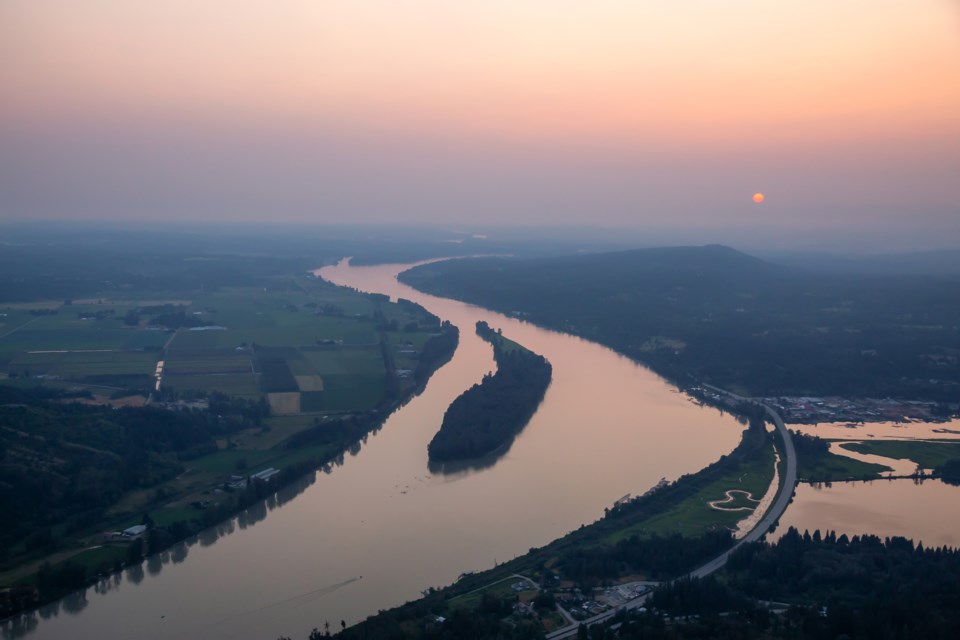Update: 4:15 p.m. June 8
The air quality advisory issued due to wildfires near Harrison Lake causing smoke in Metro Vancouver and the Fraser Valley has been rescinded by Metro Vancouver Regional District.
"Air quality has improved due to favourable winds and cooler temperatures," states the district in a press release.
Original: 2:20 p.m. June 7
Metro Vancouver has issued an air quality advisory due to wildfires burning to the east of Vancouver.
"Two out-of-control wildfires burning near Harrison Lake are producing considerable smoke that is contributing to degraded air quality and hazy conditions," states the advisory. "Hot and sunny weather in combination with local emissions and wildfire smoke has resulted in elevated levels of ground-level ozone."
Smoky air could be inconsistent across the region they add, due to changing winds and temperatures.
The advisory is focused on the eastern parts of the metro area, along with the central and eastern parts of the Fraser Valley.
"Postpone or reduce outdoor physical activity while fine particulate matter and ozone concentrations are high, especially if breathing feels uncomfortable," notes the advisory.
They note people with underlying conditions like asthma and chronic obstructive pulmonary disease. Pregnant people, children, seniors and outdoor workers may be more susceptible.
"If you are experiencing symptoms such as chest discomfort, shortness of breath, coughing, or wheezing, seek prompt medical attention," the regional government advises.
Environment Canada hasn't issued any air quality alerts for the Lower Mainland but has issued one for Inland Vancouver Island due to wildfires in the area.
The province's Air Quality Health Index (AQHI) currently shows a variety of AQHI readings (which go from 1 to 10) for southwestern B.C., with the Central Fraser Valley at an 8 (or high risk) to a 4 in Metro Vancouver's northeast and southwest regions. The metro area's northwest region currently has a 6 (moderate risk).
Wildfires are causing air quality issues across the country. While Vancouver is currently at a 22 on the US AQI scale, according to the website IQ Air, Toronto has the seventh worst air in the world, sitting at 151.



